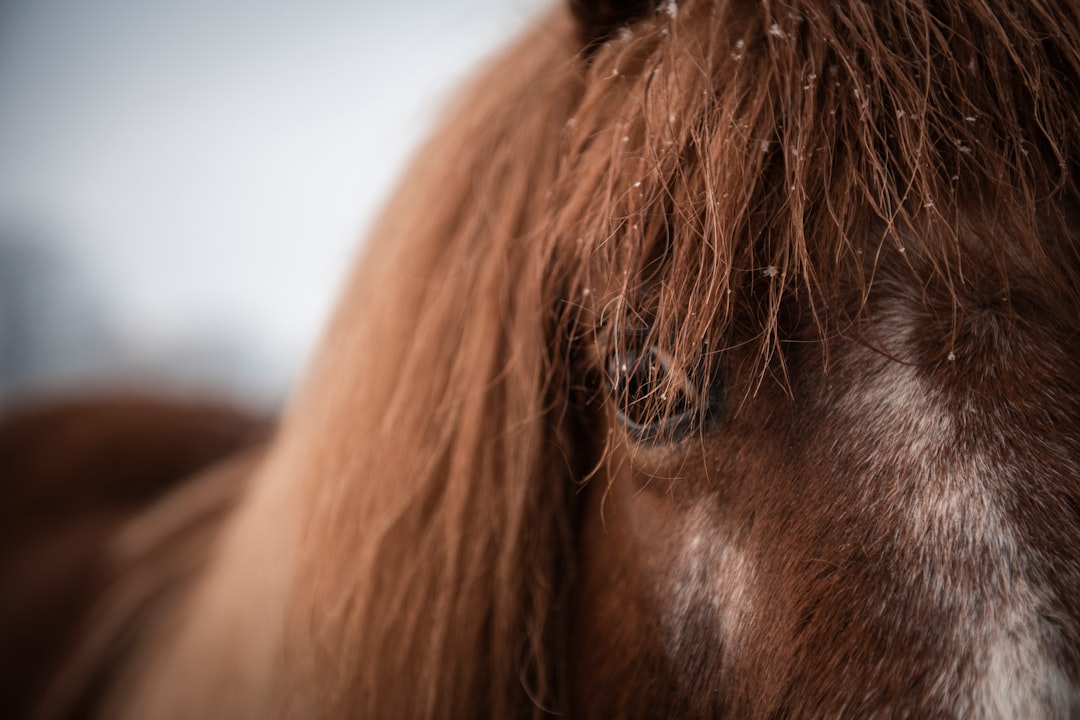Can sedation help horses cope with fireworks?
An Orion Corporation-funded study has looked at the effects of giving Domosedan gel to horses suffering from acute fireworks-induced anxiety
This post is free for anyone to read. It takes time and effort for me to write these posts, so if you liked it or found it interesting, please consider commenting, sharing it with a friend, or sharing it on social media as a thank you! Also, if you want to get notified when I post next, please consider subscribing. That’s also free!
New Year’s Eve is rarely a festive occasion for horse owners. Many of us spend the night huddling at the barn, trying to keep our horses calm and safe. While using medication to treat noise-related anxiety in dogs is becoming more common, there is limited research into the effects of anxiolytics on horses suffering from fireworks-induced fear - and, unfortunately, the results are not conclusive.
In their 2020 study Use of Detomidine Oromucosal Gel for Alleviation of Acute Anxiety and Fear in Horses: A Pilot Study, Dai et al. assessed the effects of the sedative detomidine (the active substance in Domosedan gel) on horses exposed to fireworks. The study was funded by Orion Corporation, the pharmaceutical company that produces Domosedan1.

The study was randomized, controlled, and double-blinded2. A total of 16 privately owned horses were randomly divided into a treatment group and a control group. The treatment group were given a low-to-moderate dose of detomidine (30 μg/kg) in the form of Domosedan gel, the control group a placebo.
All horses had a history of acute anxiety and fear triggered by fireworks and spent New Year’s Eve stalled in their home environments. Their owners were instructed to administer the treatment/placebo as soon as they could hear fireworks or the horse got stressed, and to record the effect. The horses were video taped during the night for a later behavioural assessment by an expert.
In the treatment group, one owner (12.5%) reported an “excellent” effect, five owners (62.5%) reported a “good” effect, two owners (25%) reported “some effect”, and no owners (0%) reported “no effect”. In the control group no owners (0%) reported an “excellent” effect, four owners (50%) reported a “good” effect, one owner (12.5%) reported “some effect”, and three owners (37.5%) reported “no effect”. The differences between the groups were not statistically significant3.
Furthermore, there were no statistically significant differences in owner-reported behaviours between the treatment and control groups. The video analysis showed that horses in the treatment group walked around less after administration of detomidine, but there were no other significant changes in behaviours in either group (see ethogram below for a detailed list of the assessed behaviours).

A principal component analysis, however, showed that horses in the control group were significantly more restless, vocalized more, and exhibited more signs of colic than horses in the treatment group.
As this was a pilot study intended to trial a study design, there are some obvious limitations in terms of sample size - it’s hard to draw any conclusions based on just 16 horses. Furthermore, the study relied heavily on owner compliance and owner administration of the treatment/placebo, and each horse was exposed to a different duration and intensity of fireworks, as they were not kept in the same location.
In my opinion, the results of this one study don’t fully support using detomidine as a reliable treatment of fireworks-related anxiety in horses, but that may largely be due to the limitations above. It’s a promising pilot study, and future studies with larger sample sizes and more controlled exposure to firework noise may present more robust results, which is something the researchers acknowledge, too.
It would, for example, be valuable to combine behavioural observations with physiological measurements of stress-related parameters such as heart rate, heart rate variability, and saliva cortisol to validate any anxiolytic effects of the treatment. Hopefully, Orion Corporation will fund follow-up studies, because finding reliable medical solutions to acute noise-induced anxiety in horses has important welfare implications.
If you’re thinking about sedating your horse on New Year’s Eve, talk to your vet! All individual medication plans should be discussed with a veterinarian, who will be able to give tailored advice for specific horses in specific contexts.
Meanwhile, there are other things you can do to help keep your horses safe and comfortable on New Year’s Eve. I’ve listed some suggestions here.
With this post, I wish all my readers and subscribers a Happy New Year! See you in 2023.
It’s great that pharmaceutical companies fund independent research into the efficacy of their products. However, this can sometimes lead to slightly overenthusiastic interpretations of the results - which I think is the case with this study - and it’s therefore good to keep funding in mind when evaluating conclusions presented by study authors. This is the reason funding sources are clearly disclosed on all research papers.
Double-blinded means that neither owners nor researchers knew which horses received which treatment until the end of the study.
A result that isn’t statistically significant is likely just an effect of chance rather than treatment.



